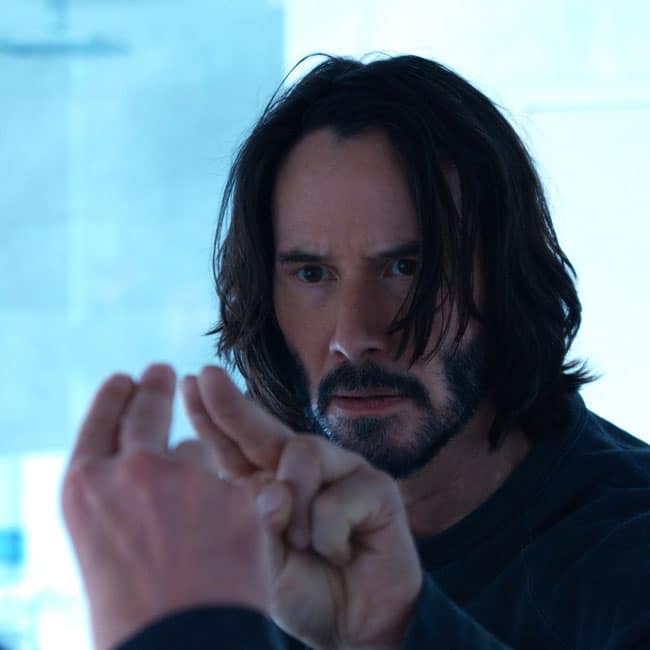
5 Movies that creepily foretold today’s greatest ethical dilemmas
Opinion + AnalysisRelationshipsSociety + Culture
BY Aisyah Shah Idil 18 DEC 2018
Climate change. Nuclear war. Artificial intelligence. A new pandemic.
According to the non-profit organisation 80,000 Hours, these are the greatest threats to humanity today. Yet the big movie studios have been calling it for decades and were pondering the ethics behind these threats long ago.
1. Planet of the Apes (1968)
Seeing Charlie Heston scream in despair at a shattered Statue of Liberty still spooks the most apathetic viewer. And it’s as shocking a warning against nuclear weapons now as it was in the middle of the Cold War 50 years ago.
In Planet of the Apes, humans are being hunted. The primates they once experimented on have grown into intelligent, complex, political creatures. Humanity has regressed into primitive vermin to either be killed outright, enslaved, or used in scientific experiments. The strict ape hierarchy demands utility over compassion, holding a mirror up to the same vices that led humanity to destruction.
—————
2. 2001: A Space Odyssey (1968)
When a survey of living computer science researchers shows half think there’s a greater than 50 percent chance of “high-level machine intelligence” – one that reaches then exceeds human capabilities – it’s right to be concerned.
2001: A Space Odyssey begins with a jaunty trip to Jupiter. An optimistic team is led aboard by HAL 9000, the ship’s computer, but begin to suspect there’s more to the trip than they’ve been told.
After all, there are two sides to the utilitarian coin. What is murder to us is just programming to a robot.
—————
3. The Matrix (1999)
If reality is a simulation by super intelligent sentient machines, what does any self-respecting hacker do? Start a rebellion.
The Matrix goes even further than 2001: A Space Odyssey. Here, the machines are Descartes’ evil demon, unsatisfied with just killing us. Instead, they mine us for energy to survive, and keep us subservient on a diet of virtual reality. A world of love, work, boring parties, and paying bills occupy us while they use us as slaves.
The point of tension in The Matrix centres around the theory of Plato’s Cave. If you know what everyone is experiencing is an illusion, should you tell them?
—————
4. 28 Days Later (2002)
28 Days Later paints a bleak picture of a world unprepared to deal with the effects of an aggressive pandemic. And it’s not as unbelievable as it may seem. According to 80,000 Hours, the money invested into pandemic research isn’t nearly as much as we need.
From HIV-AIDS, Ebola, and Zika, we’ve seen countries drag their feet over who pays to contain one, or struggle to move people and supplies to where they’re needed.
“When you’re in the middle of a crisis and you have to ask for money”, says Dr. Beth Cameron at the Nuclear Threat Initiative, “you’re already too late”.
—————
5. Children of Men (2006)
What is arguably more important than any of these things is hope. And that’s what our last movie recommendation is about.
After two decades of unexplained female infertility, war, and anarchy, human civilisation is on the brink of collapse. Civil servant Theo Faron has lost all hope as the last generation of his species. Then he meets Kee – an illegal immigrant and the first woman to be pregnant in eighteen years.
The hope for a better future, for a future that is more just and more compassionate, adds intangible meaning to our struggles today. It becomes reasonable to struggle, to suffer, and even to die for this kind of hope.
What makes the hope of today different is that we are now closer to “hypotheticals” than we have ever been.
Are we prepared to turn this hope into action? Effective altruism offers one way to find out.
Ethics in your inbox.
Get the latest inspiration, intelligence, events & more.
By signing up you agree to our privacy policy
You might be interested in…
Opinion + Analysis
Relationships, Society + Culture
Nothing But A Brain: The Philosophy Of The Matrix: Resurrections
Opinion + Analysis
Health + Wellbeing, Society + Culture
Does your body tell the truth? Apple Cider Vinegar and the warning cry of wellness
Opinion + Analysis
Relationships
5 stars: The age of surveillance and scrutiny
Opinion + Analysis
Relationships




